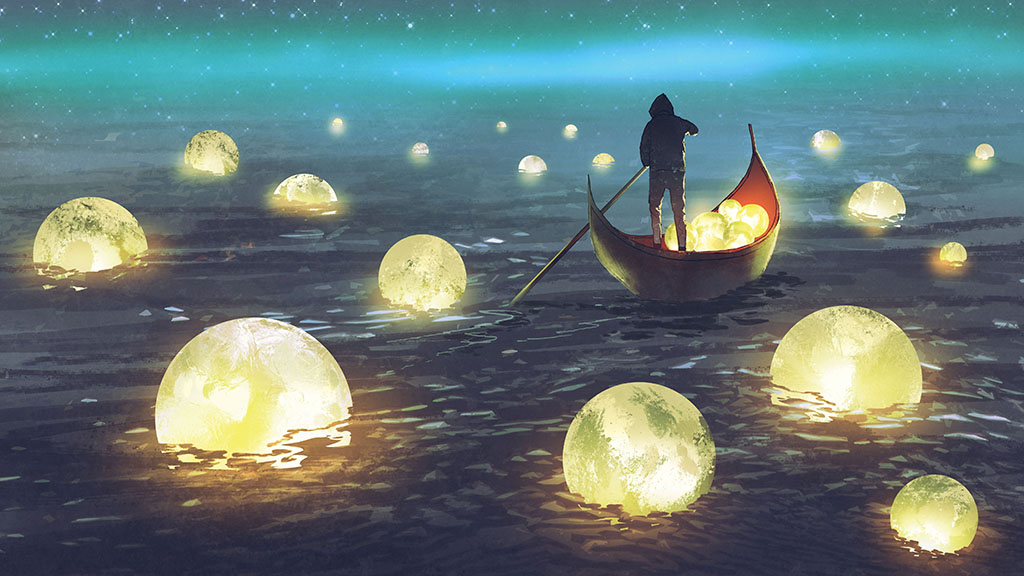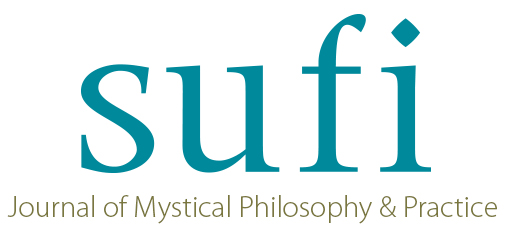EDITORS’ NOTE
Internal. External. Eternal. These aspects of a seeker’s self are always in conversation. The writers in this issue eavesdrop on this conversation, and relay what they’ve heard with varying approaches at turns lyrical or layered in complexity, direct or meandering. Some grounded in ancient history, and some firmly planted in a technological future. What do you know of yourself? Perhaps it might be more interesting to ask who—and where—is the you that is knowing it?
Surat Lozowick offers a vivid potrayal of Kanai Das Baul of Bengal, whose day job is “singing to the Divine Mother,” who is immersed in the presence of his Beloved whether in song or silence. Sholeh Johnston interviews Tiokasin Ghosthorse, who re-defines what many think of, by habit, as an external natural environment as actually existing within, when he suggests that it’s not about personally identifying with nature, “…it’s that you ask Mother Earth to be with you when you speak.” In her piece, Diffracting Rumi, Annouchka Bayley riffs on the prismatic capacities of both poem and guru; each can throw rays here and there, yet remain constant in essence. When the spirit takes human form, we are reminded of the Koranic version of a Divine Presence outside human experience, but closer than your jugular. Bernardo Kastrup, in conversation with Neil Johnston, also questions the reliability of the concept of “outside,” asserting that matter is only a matter of perception, and that, “It tries to answer this question: If this world isn’t outside consciousness, how come we are all sharing perceptions of the same world?” Mary Gossy, in her piece, Letter Pressing, tells us how a word gets in the body through slow reading, how truth gets in the body through physical movement and contact, and how “Being enclosed, in a space or a practice or both…the kingdom of heaven within and without touches itself in you.”
The conversation of true self knowledge is sometimes an analytical dialogue, sometimes an intimate whispering, sometimes a love poem to the part of you that isn’t only you. “Searching is outside. Be with the guru, don’t search…” Kanai Da reminds us. And in his discourse on knowledge of self, Alireza Nurbakhsh quotes Attar’s stanza explaining that when one reaches the stage of self-knowledge: He sees the core, not the outer layer, He does not see himself anymore, only the Friend.
—The Editors of SUFI
CALL FOR PAPERS
The editors of SUFI invite submissions of articles, stories, poetry, personal essays, and artistic works on all topics relating to mysticism. For details please visit www.sufijournal.org/submissions.
PHOTO © GRANDFAILURE | BIGSTOCKPHOTO.COM
